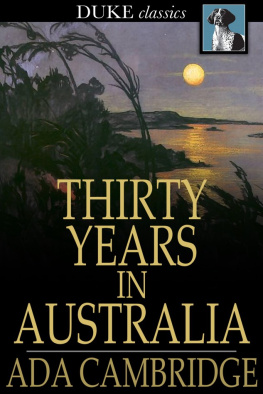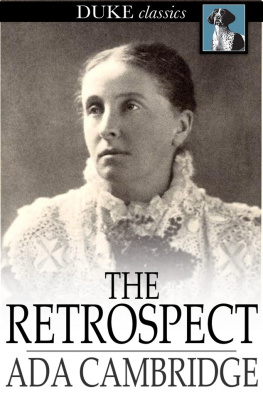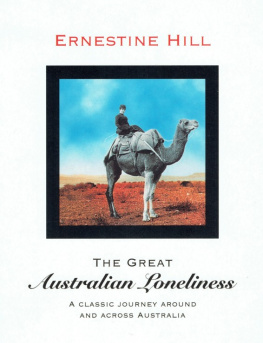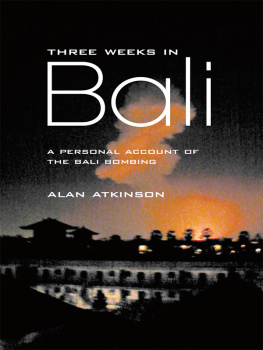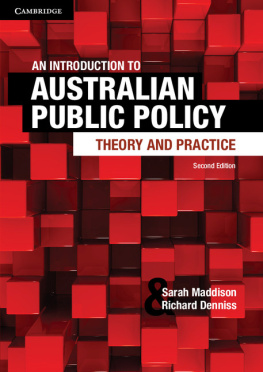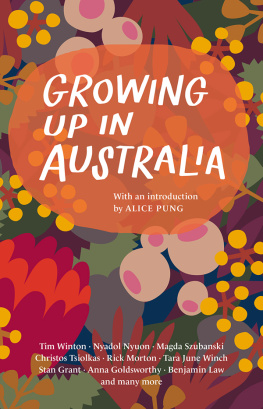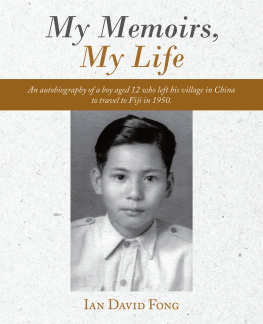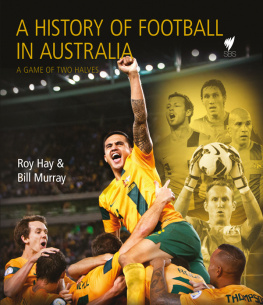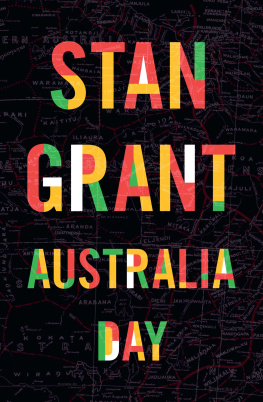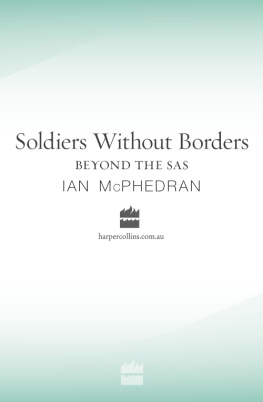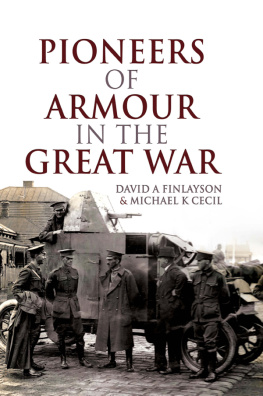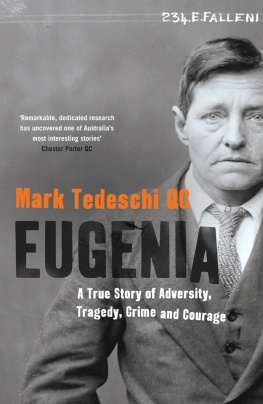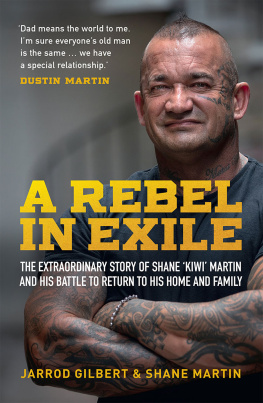Ada Cambridge - Thirty Years In Australia
Here you can read online Ada Cambridge - Thirty Years In Australia full text of the book (entire story) in english for free. Download pdf and epub, get meaning, cover and reviews about this ebook. year: 2013, publisher: Duke Classics, genre: Non-fiction. Description of the work, (preface) as well as reviews are available. Best literature library LitArk.com created for fans of good reading and offers a wide selection of genres:
Romance novel
Science fiction
Adventure
Detective
Science
History
Home and family
Prose
Art
Politics
Computer
Non-fiction
Religion
Business
Children
Humor
Choose a favorite category and find really read worthwhile books. Enjoy immersion in the world of imagination, feel the emotions of the characters or learn something new for yourself, make an fascinating discovery.
- Book:Thirty Years In Australia
- Author:
- Publisher:Duke Classics
- Genre:
- Year:2013
- Rating:5 / 5
- Favourites:Add to favourites
- Your mark:
- 100
- 1
- 2
- 3
- 4
- 5
Thirty Years In Australia: summary, description and annotation
We offer to read an annotation, description, summary or preface (depends on what the author of the book "Thirty Years In Australia" wrote himself). If you haven't found the necessary information about the book — write in the comments, we will try to find it.
Ada Cambridge had only been married for a few weeks when she set out for Australia with her new husband, a clergyman. Over the next several decades, the two lived and worked in a series of small, relatively rudimentary outposts, along with their growing family. This fascinating account of her transformation and acclimation to Australian culture will please fans of well-written memoirs.
Thirty Years In Australia — read online for free the complete book (whole text) full work
Below is the text of the book, divided by pages. System saving the place of the last page read, allows you to conveniently read the book "Thirty Years In Australia" online for free, without having to search again every time where you left off. Put a bookmark, and you can go to the page where you finished reading at any time.
Font size:
Interval:
Bookmark:

First published in 1903
ISBN 978-1-62013-317-0
Duke Classics
2013 Duke Classics and its licensors. All rights reserved.
While every effort has been used to ensure the accuracy and reliability of the information contained in this edition, Duke Classics does not assume liability or responsibility for any errors or omissions in this book. Duke Classics does not accept responsibility for loss suffered as a result of reliance upon the accuracy or currency of information contained in this book.
TO
MY TWO LIVING CHILDREN
AND THE DEAR MEMORY OF ONE
WHO WAS LIVING WHEN I WROTE IT
I DEDICATE THIS BOOK
I knew nothing whatever of Australia when I rashly consented to marrya young man who had irrevocably bound himself to go and live there,and, moreover, to go within three months of the day on which the wildidea occurred to me. During the seven weeks or thereabouts of abewildering engagement, the while I got together my modest trousseau,we hunted for information in local libraries, and from more or lessinstructed friends. The books were mostly old ones, the tales thesame. Geoffrey Hamlyn was my sheet anchor, but did not seem to besupported by the scraps of prosaic history obtainable; we could notverify those charming homes and social customs. On the other hand,cannibal blacks and convict bushrangers appeared to be grim facts. Asfor the physical characteristics of the country, there were but thescentless flowers, the songless birds, the cherries with their stonesoutside (none of which, actually, is the rule, and I have foundnothing to resemble the description of the latter), and the kangaroothat carries its family in a breast-pocket, which we felt able to takefor granted. These things we did believe in, because all ourauthorities mentioned them. G. had a letter from a college friend whohad preceded him to Australia, reporting the place not wild at all,but quite like home. He instanced an episcopal dinner-party that hehad attended, and a church dignitary's "three sweetly prettydaughters," who had come in the evening, and with whom he had sungduets. But at time of writing he had got no further thanMelbourneknew no more than we of the mysterious Bush, which Ithought of as a vast shrubbery, with occasional spears hurtlingthrough it. When we had assimilated all the information available, ourtheory of the life before us was still shapeless. However, we wereyoung and trusting, and prepared to take things as they came.
G. was an English curate for a few weeks, and an English rector for afew more. It was just enough to give us an everlasting regret that theconditions could not have remained permanent. Doubtless, if we hadsettled in an English parish, we should have bewailed our narrow lot,should have had everlasting regrets for missing the chance of breakingaway into the wide world; but since we did exile ourselves, and couldnot help it, we have been homesick practically all the timegood asAustralia has been to us. At any moment of these thirty odd years wewould have made for our native land like homing pigeons, could we havefound the means; it was only the lack of the necessary "sinews" thatprevented us. Such a severe form of nostalgia is, however, uncommonhere, and would be cured, I am told, by a twelve months' trip.Certainly, in nine cases out of ten, where I have known the remedytried, it has seemed infallible. The home-goers come back perfectlysatisfied to come back. It is when they stay at home for more thantwelve months that they want to stay altogether.
G.'s brief curacy synchronised with our brief engagement. I was adistrict visitor in the parish which he served, and in which he wasborn. He became a rector on the wedding day. The charming rectory wasplaced at our disposal for the honeymoon by the real incumbent, ourmutual friend, he and his good wife taking the opportunity to payvisits until we had done with it. We drove thither in the afternoon,and heard the bells ringing as we entered the village, and found therectory-gate set wide and the white-satin-ribboned maids awaiting uson the doorstep of the beflowered house. We had two maids and a manservant; we had a brougham; we had a tiny hamlet of a parish in which(compared with what we have known of parishes) there was nothing todotwo services on Sunday, and a little business of coal and clothingclubs during the weekand where our parishioners dropped curtseys tous on the road, and felt honoured beyond measure when we went to seethem. No wonder that, under the too totally opposite circumstances ofclerical life as we have lived it here, we have looked back to thathaven of dignified peace and ease with the wishthe stupid wishthatwe could have had it always.
Nothing could have suited us better while we did have it. We were butfour miles from our homes, and could see our people, who were to loseus in a month, while still ostensibly in bridal seclusion. A sisterfrom whom I was separated for the whole of the thirty years, but whois with me now, to gossip, as we are always doing, of those old days,used to walk out before breakfast. We would have a quiet sewingmorning, getting forward with the preparations still so far fromcompleted; then we would perhaps drive her home in the afternoon, andget an hour with my mother, who surpassed all the mothers I ever knewin her unselfish passion for her children, and for whom my heartbleeds to this day when I think of what my going cost herfor I knowmore of mothers' sufferings in that way than I did then. She would beworking her dear fingers to the bone over something to add to thearray of zinc-lined boxes which were being fed by instalments in mydeserted room, and I see now the flash of tearful joy that lit herfair, fine-featured face when I came with my poor crumb of comfort forher hungry heart. Intimate girl companions walked over to lunch or toplay a game of croquet, or to make better use of the little timeremaining to us; and we walked half-way back with them on the lonelyroad and through the leafy lanes. It was April and May, and, as far asI can remember, all fine weathera last impression of Englishspringtime that has lived with me like a beautiful portrait, anidealised portrait, of a dead and longed-for friend. "Oh to be inEngland now that April's there!" has been the yearly aspiration of myhomesick soul, which takes no account of east winds and leaden skies,but only of chaffinches and apple boughs, just as Browning's did. Mybirds are the skylarks above those fen-meadows, and the flower I thinkof first my favourite lily-of-the-valley, of which I carried a greatbunch, with the dew still on it, to the cathedral on mywedding-morning. And those golden May evenings, when we wandered backalong the empty road, after setting our friends on their homewardwayI see them in some of Leader's pictures, which, if I were rich,I would buy to live with me, for that reason only. The friends coulddine with us at the then usual hour, and still get home before theslow twilight passed into nighta thing impossible in this country.They were the last hours that we spent togetherall young thingsthen, but now grey and elderly, though I cannot realise it; three ofthem widows, most of them grandmothers, but never old to me, nor I tothem. For more than thirty years we have not met, and there have beenlong gaps in our correspondence; but friendship has survived all,unchanged. They still write to ask when they are to see me, and Istill write back to make provisional appointments which I can by noeffort contrive to keep.
Font size:
Interval:
Bookmark:
Similar books «Thirty Years In Australia»
Look at similar books to Thirty Years In Australia. We have selected literature similar in name and meaning in the hope of providing readers with more options to find new, interesting, not yet read works.
Discussion, reviews of the book Thirty Years In Australia and just readers' own opinions. Leave your comments, write what you think about the work, its meaning or the main characters. Specify what exactly you liked and what you didn't like, and why you think so.

